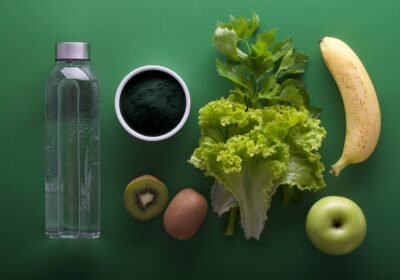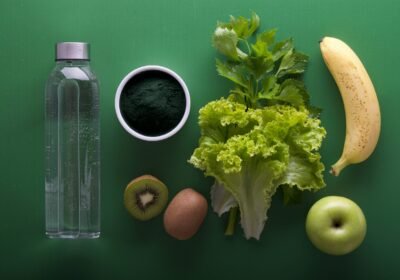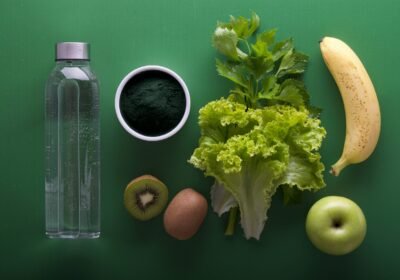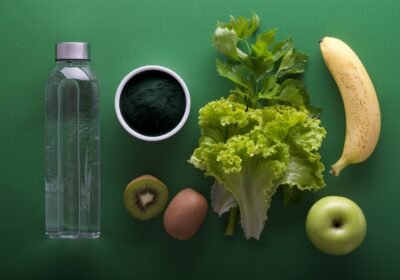Danish Diet Revolution: The Power of Fermented Foods for Optimal Health
Understanding the Fermentation Trend
Fermentation is a metabolic process that converts sugars to acids, gases, or alcohol using microorganisms like bacteria, yeasts, or molds. This age-old preservation technique is experiencing a resurgence in Denmark, where it has become a fundamental aspect of many traditional dishes and is increasingly recognized for its health benefits. Danish cuisine has integrated various fermented foods, such as sauerkraut, buttermilk, and traditional rye bread, into the daily diet, garnering interest from health enthusiasts and nutritionists alike.
The popularity of fermented foods in Denmark can be attributed to a growing understanding of gut health and its significant impact on overall well-being. Research has shown that a diverse microbiome plays a crucial role in immune function, mental health, and digestion. Fermented foods are laden with probiotics—live microorganisms that offer various health benefits when consumed in adequate amounts. These probiotics enhance gut flora, promoting improved digestion and absorption of nutrients, which is increasingly important as more people focus on holistic approaches to health.
In Denmark, the trend towards fermentation aligns with a broader commitment to sustainability and local sourcing. Many small-scale producers and local farmers have begun to create artisanal fermented products, often using organic ingredients. This not only supports the local economy but also encourages individuals to adopt healthier eating habits that are in harmony with their environment.
Scientific studies are now shedding light on the potential of fermented foods to combat various health issues, such as obesity and inflammatory diseases. As awareness of these benefits spreads, fermentation is becoming a vital addition to modern diets in Denmark, encouraging a renewed appreciation for traditional practices. By incorporating fermented foods into daily meals, individuals can actively participate in the ongoing Danish diet revolution and improve their overall health.
Health Benefits of Fermented Foods
Fermented foods have been an integral part of traditional diets in Denmark and other cultures for centuries. Recent studies have underscored the numerous health benefits that come with regular consumption of these foods, thus attracting greater attention to their role in modern nutrition. One of the primary advantages of fermented foods is their ability to improve digestion. The fermentation process enhances the bioavailability of nutrients and introduces beneficial probiotics that support a healthy gut microbiome, essential for effective digestion and nutrient absorption.
Moreover, consuming fermented foods can lead to enhanced immunity. Research published in reputable journals has demonstrated that probiotics found in fermented products, such as yogurt, kefir, and sauerkraut, can boost the body’s immune response. These live microorganisms help to reinforce the gut barrier, preventing harmful pathogens from entering the bloodstream, and they can also modulate immune signaling pathways. Experts suggest incorporating a variety of these foods into one’s diet to reap the full spectrum of health benefits.
In addition to aiding digestion and bolstering immunity, fermented foods have been linked to better mental health. The gut-brain connection has garnered significant attention in recent years, with studies indicating that a healthy gut microbiome contributes to improved mood and cognitive function. For example, probiotics may help alleviate symptoms of anxiety and depression by influencing the production of neurotransmitters, such as serotonin, which plays a vital role in regulating mood.
As the Danish diet revolution continues to embrace the power of fermented foods, incorporating products like kimchi, kombucha, and pickled vegetables can lead to better overall health. The growing body of evidence surrounding the health benefits of these foods encourages individuals to explore their incorporation into daily meals for optimal health and wellness.
Popular Fermented Foods in Denmark
In Denmark, fermented foods have taken center stage as a vital aspect of a healthy diet. These foods not only carry a rich cultural heritage but also offer numerous health benefits, contributing to optimal health. One noteworthy trend is the increasing popularity of traditional Danish fermented foods such as kefir, sauerkraut, and various pickled vegetables. Each of these foods provides essential probiotics that promote gut health and support the immune system.
Kefir, a tangy, fermented milk drink, is highly regarded for its probiotic content. Often enjoyed for breakfast or as a refreshing snack, it can be found in most supermarkets across Denmark. There is a growing interest in homemade kefir, with many Danes experimenting in their kitchens to cultivate and flavor their own batches. Local markets frequently host workshops on fermentation, aiding enthusiasts in learning the craft.
Sauerkraut, made from fermented cabbage, is another staple that has regained popularity among health-conscious individuals. It is praised for its digestive benefits and is commonly paired with traditional Danish dishes, enhancing their flavor while providing beneficial nutrients. Several farms and specialty shops in Denmark offer locally-produced sauerkraut, emphasizing organic ingredients and traditional fermentation techniques.
Moreover, pickled vegetables such as radishes, beets, and cucumbers have also gained traction within the Danish culinary scene. These vibrant accompaniments not only add a delightful crunch but also enrich meals with complex flavors and beneficial bacteria. Grocery stores and local farms dedicate shelves to various home-pickled options, reflecting the collaborative spirit of the community in promoting health through fermented foods.
With the increasing focus on health and wellness in Denmark, finding and preparing fermented foods has never been easier, whether shopping at local markets or experimenting with recipes at home. This trend serves as an invitation to embrace the numerous benefits of fermentation while enjoying the rich flavors and traditions that characterize Danish cuisine.
Incorporating Fermented Foods Into Your Diet
The inclusion of fermented foods in your diet can significantly enhance your overall health and well-being. As Denmark embraces the health benefits of fermented foods, it is essential to understand how to effectively integrate these nutrient-rich options into your daily meals. Start by introducing a variety of fermented foods such as yogurt, sauerkraut, kefir, kimchi, and miso into your diet. These foods are not only delicious but also contain probiotics that promote gut health, boost the immune system, and can even improve mood and mental clarity.
To effectively incorporate fermented foods, begin with small servings. For instance, add a spoonful of sauerkraut to sandwiches or serve it as a side dish to complement meat or fish. Yogurt can serve as a base for smoothies or as a topping for oatmeal or granola, providing an easy and tasty way to reap its benefits. If you’re new to fermented foods, you may want to start with kefir, a drinkable yogurt that is generally well-tolerated and can be enjoyed alone or in smoothies.
For those looking to explore easy recipes, consider preparing a basic kimchi or pickled vegetables at home. These processes can be straightforward and enjoyable. Alternatively, try fermenting your own vegetables in brine; carrots or cucumbers make excellent, crunchy options. The fermentation can be a fun kitchen experiment and allows for the customization of flavors according to personal preferences. Finally, don’t forget to enjoy these foods regularly to receive the maximum health benefits associated with this diet trend.
As you become more familiar with fermented products, experiment with swapping them for less healthy ingredients in your meals. For example, use miso paste as a seasoning in soups and sauces instead of salt, or drizzle fermented sauces over salads. Embracing these changes gradually can help you smoothly transition into a healthier eating pattern while financially supporting local producers who offer high-quality fermented options.









